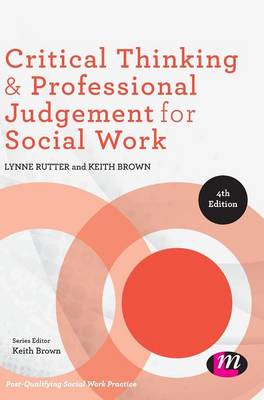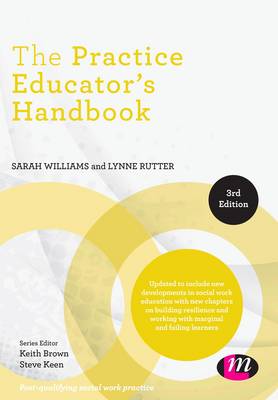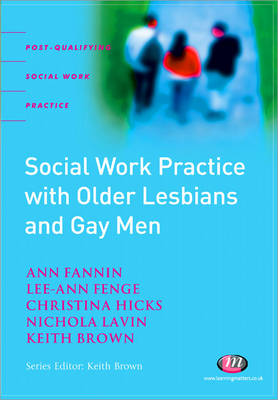Post-Qualifying Social Work Practice
8 total works
Critical Thinking and Professional Judgement for Social Work
by Lynne Rutter and Keith Brown
Critical thinking as a process can appear formal and academic, far removed from everyday life where decisions have to be taken quickly in less than ideal conditions. However, now more than ever, it is seen as a vital part of social work, and indeed any healthcare and leadership practice within the current agenda for integration, and in the post Francis inquiry health care context.
This Fourth Edition now reflects this wider arena, but also includes new material in response to the continuing review of social work professional standards. It continues to take a pragmatic look at the range of ideas associated with critical thinking, focusing on learning and development for practice. The chapter on professional judgement has been extended to provide a wider discussion on practical reasoning and judgement in relation to developing expertise, while other chapters and reading lists have also been updated, and activities revised to enhance learning.
The authors continue to emphasise the importance of sound, moral judgement based on critical thinking and practical reasoning; while also acknowledging the tensions for staff and teams facing complex, uncertain situations and sometimes oppressive workplace cultures. Their hope is that increased and informed attention to your thinking can help nurture wise deliberation and action in such challenging times.
This book is for busy social workers involved in supporting, enabling and assessing learners in the workplace. It has been written specifically to support those undertaking practice educator awards that meet the staged requirements of the Practice Educator Professional Standards (CSW, 2012), and will provide invaluable guidance and support to social workers who are new to a practice education role. It will also be of interest to more experienced practice educators seeking support to reflect critically on their practice and further develop their professional capability.
Challenging you to take a critical, evidence-informed approach to your thinking and your practice, this easy-to-read book has been updated to include new developments in social work education, with new chapters on building resilience within social work practice and working with marginal and failing learners. All other chapters and reading lists have also been updated, and activities revised to enhance learning.
Effective Leadership, Management and Supervision in Health and Social Care
by Ivan Lincoln Gray, Richard Field, and Keith Brown
Performance Coaching Skills for Social Work
by Jane Holroyd and Richard Field
Improving Personal and Organisational Performance in Social Work
by Jane Holroyd
This book offers a service-oriented leadership approach for Social Work managers and looks to enhance personal effectiveness and ultimately organisational performance through human behaviour, thought and communication. It is designed to support the development of aspiring and front line managers in social work and care through the introduction of key concepts such as understanding the Self, Neuro-Linguistic Programming, self-leadership and communication.
Social Work Practice with Older Lesbians and Gay Men
by Ann Fannin, Lee-Ann Fenge, Tina Hicks, Nichola Lavin, and Keith Brown



